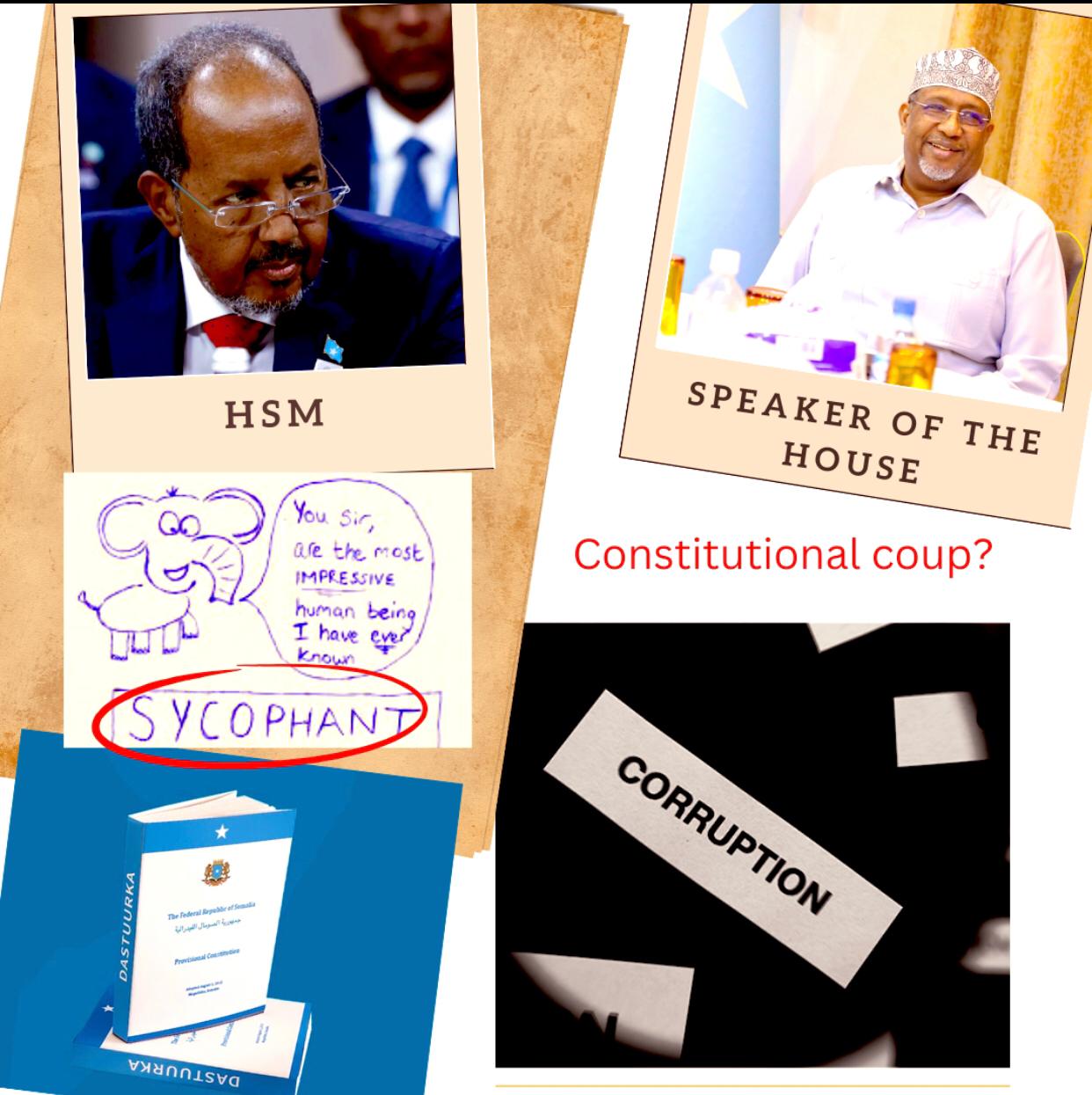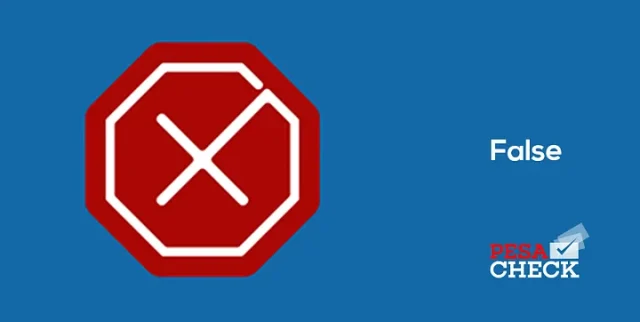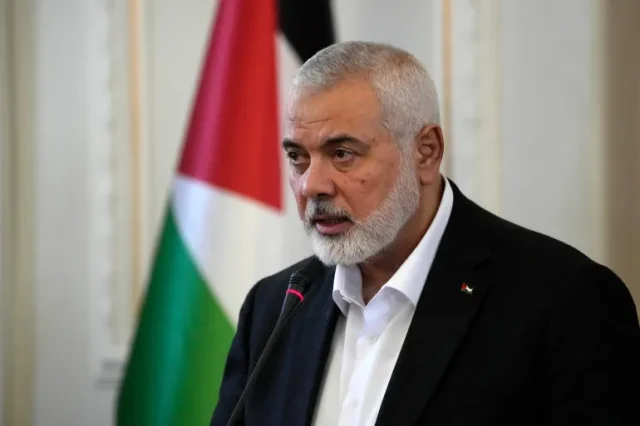On 25 March 2024, a week before Somalia’s rubber stamp parliament would at the behest of the overly-powerful presidency “amend” some chapters of the constitution, or rather in reality, hastily ratify a completely new and unilateral constitution and dispense with the previously agreed upon provisional one, massive state-sponsored rallies endorsing said amendments were happening in the country’s capital, Mogadishu.
For the most part, the masses participating in these rallies didn’t have detailed knowledge of what they were endorsing, as a common practice in Somalia which likely was the case in these rallies – is the authorities rounding up protesters-for-hire – taking advantage of the impoverished class of the community living in IDP camps, exchanging their need for money for a show of popularity.
For these people, who make up the main chunk of any pro-government protesters across the country, federal or regional, being fully cognizant of the matters they’re endorsing or opposing isn’t, understandably, as high on their agendas as the little fees they’re receiving on the day to fend for their families.
Become a Sycophant or … Get Fired
While the image of a popular backing for its constitutional coup was being projected by the administration to the world – which prides itself in tolerating criticism and engaging with the intelligentsia – all voices of dissent and constructive critics within the government were curbed.
A well-documented case of this that played out on the social media platform X was the firing of a security expert working as a consultant at the ministry of internal security, who constructively gave her criticism of the hasty and unconstitutional nature of these amendments, predicting they would in the end prove to have been a waste of time and resources. She advised the administration to not be short-termist and avoid looking for quick, fleeting wins that would further divide the country down the line.
A minister rumored to be in the president’s close circle started actively campaigning for her sacking by tagging the handle of the ministry she was part of, and accused her of betraying the administration that “employed” her. The ministry of internal security heeded the call and the consultant was swiftly sacked.
Not only was this an encouragement of sycophancy of epic proportions, but also a blatant disregard for the citizen’s constitutionally-protected right to criticize their government in a supposed democracy. This incident laid bare the group-think and herd mentality required to survive in today’s Somalia government settings.
What Did the Rallies “Endorse”?
Under the new constitution, the country is to shift from its familiar parliamentary system to a presidential one. Now reversed, the Prime Minister post was to be abolished and changed with a powerless Vice President one. The country would have no more than two parties, and, it was outlined that the next president could only come through a process of universal suffrage.
To appease the signatories to this sham process who were the leaders of the federal member states excluding Puntland state which boycotted the process altogether, and get their signatures, the President granted them indefinite, unconstitutional term extensions.
The Faults in the New Constitution
Though no system of governance is infallible, Somalia has trodden down the presidential, strongman path in the past, under General Mohamed Siyad’s 21 years of military rule, and its end result was catastrophic, as he left behind a deeply fragmented society and warring, mistrusting clans. Reverting back to the system that rendered Somalia a dysfunctional state and its societal cohesion non-existent so soon, is both myopic and a lesson not learned, and makes for an environment conducive to the rebirth of a dictatorship in the future.
And, confining the political space of a community that is yet to have genuine reconciliation to mere two parties is certain to sow further distrust, because not only will it limit the general public’s political participation, but will also lock out most of the current political stakeholders of note, and it reeks of a longing for the centralized mode of governance of pre-civil war days.
But the most unrealistic of them all is the chimera of holding of a nation-wide democratic presidential election in less than 2 years, when large swathes of land in South-Central Somalia are still under Al-Shabaab’s reign. This in the Somali political lexicon, is a synonym for one’s wish to stay beyond their mandate; an extension.
Even in a relatively peaceful state in Puntland that was under government rule for nearly 3 decades, holding a democratic presidential election remains an unaccomplished feat, as a lot has to go right before such a milestone can successfully be carried out.
Record Levels of Corruption
Halfway through the administration’s term, corruption and nepotism are not only thriving – but loudly promoted and implemented by the country’s highest offices.
The President, for instance, in a townhall meeting, publicly defended the involvement of one of his daughters in the ministry of foreign affairs which at the time was the talk of the town.
“Why shouldn’t the leaders’ children be employed in the government”? – he sarcastically asked the audience.
Few days later, another scandal followed, as the minister of commerce in a widely circulated video unabashedly told a parliamentary committee his desire to make all the ministry’s employees consist of only his close family members and sub-clan. This overt nepotism, many argued, was the direct result of the President, the head of the state’s televised glorification of the practice.
The landgrab in the capital is off the charts as government officials and their aligned syndicate of robber barons are on a sustained spree of confiscating both public and private land. Not even cemeteries are safe from the theft as graves are being dug up and bodies exhumed, to have in their place luxurious, commercial buildings erected.
Corruption and kleptocracy are very rife in Somalia but this administration’s take the crown, as theirs come in all forms, be it a landgrab, nepotistic appointment or aid embezzlement. It’s tiered and worsening by the day. And, to add insult to injury, the leaders are vocal about their aversion to corruption all the time.
Hassan Sheikh 2.0: No Political Coming of Age
President Hassan is the only president to serve two terms at the national level throughout Somalia’s history.
His previous term (2012-2017) was known for most of the things his ongoing second term is replete with: corruption and nepotism, signing a myriad of binding, overlapping and murky treaties with foreign governments and corporations that aren’t shown to the parliament let alone the public, and a maximalist attitude in relation to domestic politics. It’s clear that he hasn’t learned from the mistakes of his erstwhile presidency and ensuing 5 years of opposition.
Paradigmatic of the modern-day Somali politician, he in his spiels, says all the right things but works on the furtherance of all the wrong things.
He leads a country that needs urgent reconciliation and internal unity, and has its sovereignty threatened by its neighbors like the expansionist Ethiopia. Should his administration not reverse course in their remaining two years and salvage the eroding public trust, and if not improve on – leave the country as it inherited it – his second term will prove to have been even more disastrous than his first one.
No amount of symbolic “wins” on the international arena, like the country’s ascension to the East African Community or securing a two years long Non-permanent UN security council seat, will make up for the costly domestic failures, for if not coupled with a unifying – not polarizing – national agenda, those wins will be reduced to just that, symbolic.
Osman Aidarus writes on Somali history and their social issues.
He can be reached at aidarusosman42@gmail.com.
————————————————————————————————————
Opinions expressed in this article are the author’s own and do not necessarily reflect the editorial policy of Puntland Mirror.






